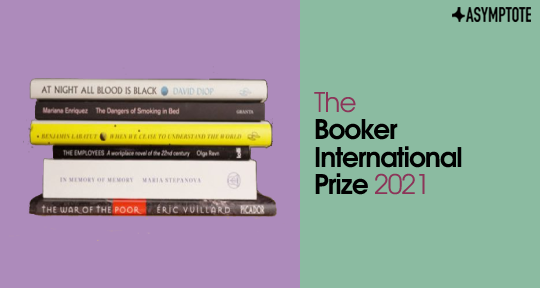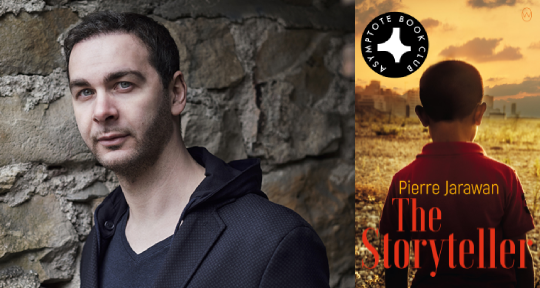Occupation by Julián Fuks, translated from the Portuguese by Daniel Hahn, Charco Press, 2021
I’m writing a book about fatherhood without being able to become a father—and probing motherhood as if I didn’t know that I will never learn it. I’m writing a book about death without ever having felt it switch off a body, in a speculation of feelings that one day will seem laughable, when I do encounter the pain. I’m writing a book about the pain of the world, the poverty, exile, despair, rage, tragedy, ludicrousness, a book about this interminable ruin surrounding us, which so often goes unnoticed, but as I write it I am protected by solid walls.
Occupation, Julián Fuks’ latest novel to appear in English translation by Daniel Hahn, is a quiet masterpiece. Touching on family and relationships, birth and death, colonialism, the refugee crisis, political activism, the Holocaust, our (in)ability to identify with one another, and how to find hope in a world of ruin, this novel is sweepingly ambitious in its themes, yet the measured, self-critical voice of the narrator and the calm, understated prose prevents it from veering into sensationalism or sentimentality.
The novel’s chapters alternate between the different preoccupations of our narrator, Sebastián: his father, who is occupying a hospital bed; his wife’s decision to have a child, which will occupy her body and shift the dynamics of their relationship; a group of migrants occupying a dilapidated building, many of whom exiles from lands that have been occupied, now seeking refuge in Brazil, a country with its own history of occupation; and his own attempts to understand what all of this means for his occupation as a writer.
Small jumps in time, along with chapters that begin mid-conversation, can at times create a sense of dislocation, but Fuks weaves the strands together so gently and dexterously that when they coalesce, it does not feel like the technique has been a pretext for creating suspense; rather, it is as though the narrative has been constructed this way so that the narrator might himself work through and better understand the components—as if each narrative thread must be understood on its own to bring the whole into relief. Nevertheless, the technical mastery of this construction should not be downplayed, and throughout the book, the reader will notice explicit motifs along with subtle echoes and patterns in the language. All this adds to a sense that the novel’s threads are both connected and discreet, amplifying the plurality of the voices and experiences which ultimately merge with the voice of the narrator, who “allow[s] them to occupy [him], to occupy [his] writing: an occupied literature.” READ MORE…












